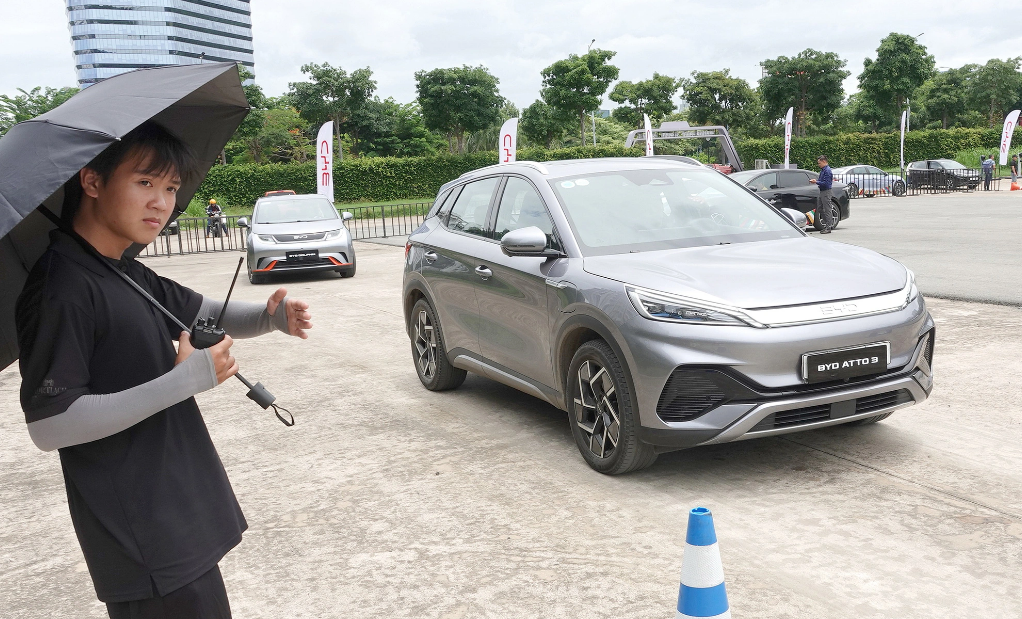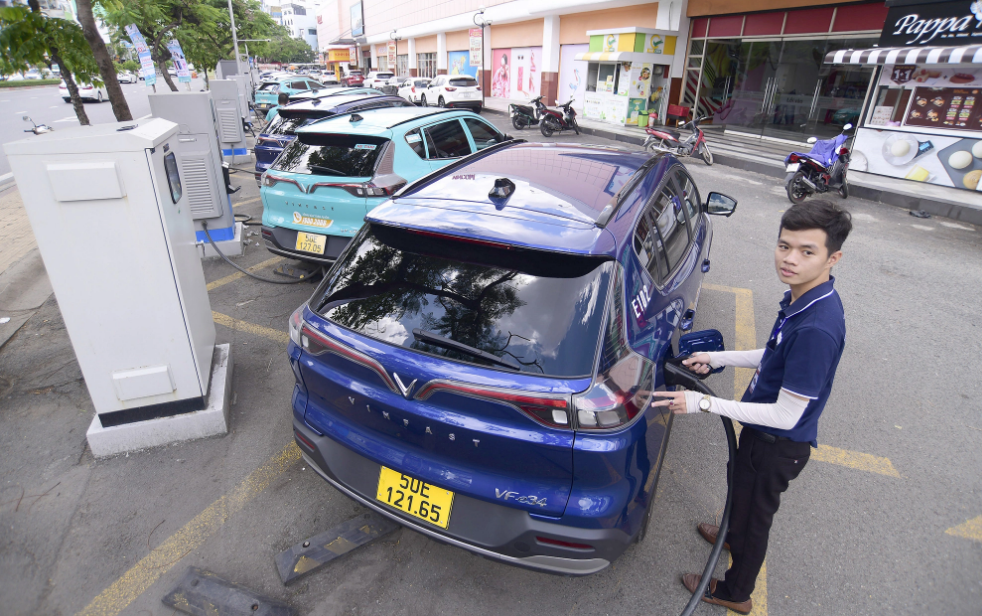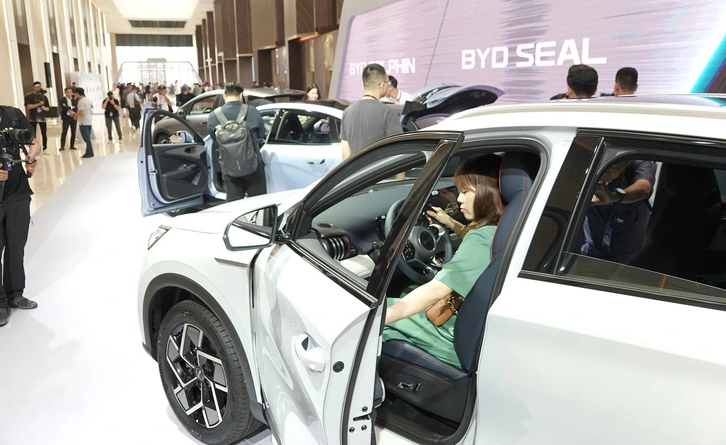Chinese electric vehicle giant BYD on Thursday announced the prices of its three electric car models sold in Vietnam, where 10 other Chinese automobile brands have been operating.
The three BYD models include the Dolphin, SUV Atto3, and Seal priced at VND659 million (US$25,880), from VND766 million ($30,080) - VND866 million ($34,010), and from VND1.1 billion ($43,160) - VND1.3 billion ($51,010), respectively.
These prices are higher than those of gasoline-engine vehicles and EVs of other brands in the same categories.
“We have carefully studied the Vietnamese market for over 10 years,” said Liu Xue Liang, general manager of BYD Asia Pacific Auto Sales Division, underlining that the prices were set for the market as a result of an in-depth study.
In addition to concerns over the future of the Chinese EVs in Vietnam due to their high prices, many local customers showed their curiosity about their charging systems.
Vo Minh Luc, CEO of BYD Vietnam, said that the company has no plans to build charging stations, but it will cooperate with other firms to supply customers with charging systems.
Customers can charge their BYD cars at the brand’s dealerships.
Moreover, each BYD EV buyer will be provided with an EV charger.
“It will be tough for EV drivers to travel for a long distance without charging stations along roads,” said Quang Ha, a resident of Thu Duc City under Ho Chi Minh City.
Ha said that to purchase an electric car in Vietnam, buyers will base on the popularity of EV brands and convenience in charging and relevant services.
Nguyen Minh Dong, director of a technology consulting firm, said that charging stations are the pivot of the EV industry.
The EV industry will thrive only when charging infrastructure is ready, he stressed.
Meanwhile, Vietnamese EV maker VinFast is dominating the local market, with 150,000 charging stations nationwide. The brand is continuing to expand its charging system.
The charging system plays a decisive role in the success of an EV brand, Dong said.
BYD had previously informed that it would spend some $250 million building an EV assembly plant in Vietnam, but it switched its plan to Indonesia, Thailand and Cambodia.
China is producing the most EVs in the world and is the world’s largest seller of EVs.
In the first five months of 2024, BYD became the global best-selling EV brand, with over one million cars sold.
In June, the brand sold more than 341,650 EVs.
 |
| Customers test BYD cars in Thu Duc City, Ho Chi Minh City on July 18, 2024. Photo: T.T.D./ Tuoi Tre |
Speaking of the future presence of Chinese EVs in Vietnam, the Vietnam Automobile Manufacturers' Association (VAMA) said that Chinese automakers are capable of producing low-cost EVs and distributing them to the Southeast Asian nation in the coming time.
Vietnam is a potential market for EVs, as the government is moving to discontinue vehicles using fossil fuels by 2040.
The VAMA assessed that Chinese EVs in particular and vehicles imported from other nations in general are piling pressure on locally-assembled and produced ones.
Since completely-built-up cars imported from ASEAN countries started to enjoy zero percent import duty in 2018, many domestically-assembled cars have failed to compete with imports from Thailand and Indonesia.
Facing the entry of Chinese EVs, VinFast has offered a promotional program which features free parking and charging for customers who buy VinFast cars from now until July next year.
Besides, VinFast's parent company, Vingroup, has established FGF Services and Trading JSC to trade and rent EVs, contributing to stabilize the prices of the VinFast cars.
 |
| An EV charging station in Ho Chi Minh City. Photo: Quang Dinh / Tuoi Tre |
Like us on Facebook or follow us on Twitter to get the latest news about Vietnam!



















































